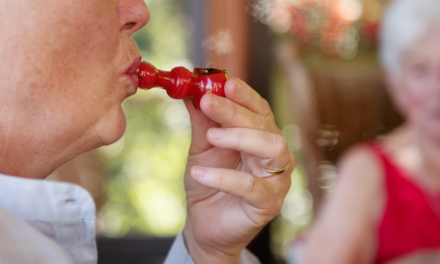I used to think that credibility with SUD clients sprang from having the right credentials. It doesn’t, though.
Credibility comes from having some piece of knowledge that the client values at that particular point in their lives.
I’m reminded of a clinical director at one outpatient program who was himself a much-respected therapist with several books to his credit on various therapy techniques. For some reason, the clients paid little attention to his advice. Most of the time, they treated him like a visitor from Mars.
You know who they sought out for guidance? A trainee counselor.
Why? Because she was good at providing the sort of information they were interested in. Such as how to stay sober when your family makes it plain they sort of liked you better when you were still getting high. How to manage a craving that starts when you wake up in the morning and keeps coming back, deep into the night. Even what to do when that ex-lover bangs on your door at midnight looking for someone to get high with.
This trainee was pretty good at that sort of advice.
It’s tempting for a counselor to get caught up in discussing complex issues and to lose sight of the reality that early success is about changing behavior. The ‘how’ being more important than the ‘why’.
With SUD clients, it’s a good idea to learn as much as you can about the different tactics recovering people have used to make it through that difficult first year. Giving up booze and pot is easy unless you’re addicted to them. Then it can feel as if your whole life has been turned upside down.
It’s the simple stuff that people respond to. If your client doesn’t seem to be getting it, it might be because you haven’t simplified things enough.
No, that’s not the role for which therapists were trained. But the client is sitting in front of you, waiting to hear something they can use.
Now’s your chance, as well as theirs.
Don’t blow it.














Prior to beginning my internship I volunteered at an Inpatient program. The on-duty weekend counselor was female. She made it known to the clients (adolescent boys unit) she was not in recovery ’cause she was neither an addict/alcoholic. Being green, I could not understand how she could work w/ individuals w/ SUD’s if she had no “drug experience”. The boys verbalized to her what I was thinking.
They spoke w/ me outside about why they were there etc… but when it was time for group, they would not talk to her. Again, being green, I thought, no wonder they won’t speak to her about their issues, she would/could not understand.
After years in the field, I obviously do not think that way today but the article brought back memories as well as a sad reality that issues like this still happen today.